Browsers are probably the most important tools on our PCs and laptops. They provide access to all the content on the internet. Whether it’s the latest social media trends, Wikipedia articles or news posts: Without a browser, it is (almost) impossible to participate in the huge variety of content on the World Wide Web.
That’s why there are now numerous different browsers that allow you to do just that. Safari, Chrome and Firefox are just a few examples of popular internet browsers. In recent years, one topic in particular has gained in importance when using browsers: Security.
Data protection and privacy on the Internet are more important than ever before. It’s no longer just about surfing the web quickly with your favourite browser, but also about a high level of security.
In this article, we analyse 9 popular browsers and search engines in terms of their security, data protection aspects and privacy for a carefree Internet experience!
How to recognise (in)secure browsers
Before we take a closer look at the individual browsers, it is important to understand what makes a browser secure or insecure. Very few browsers are set to maximum security by default.
Instead, most browsers allow your usage activity to be tracked and logged. For example, the pages you visit are monitored. Passwords can also be saved by requesting them from the browser and cookies can be placed. Even private information such as your location can be requested by websites.
In principle, users are therefore strongly encouraged to configure data protection and privacy settings in such a way that they meet their own security requirements.
Managed WordPress Hosting
With our Managed WordPress hosting, you get a powerful, secure and easy-to-manage solution that quickly and reliably takes your WordPress project to the next level. Check it out!
A secure browser, on the other hand, has a range of security functions that you can use to protect all sensitive information and maintain your anonymity on the web.
There is a range of features that a browser should fulfil in order to be considered “secure”. Only then can you be sure that your data is always protected and that you can browse the web safely.
– Warnings about unsafe sites and downloads
You have probably already had the experience of trying to access a website or download a file and suddenly being shown a warning. This is one of the most important security features that browsers must have. There are numerous black sheep on the Internet who use downloads and websites to infiltrate their victims with malware and viruses in order to obtain sensitive data or paralyse their systems.
The browser warning is an important safety element that shows you that you should cancel the download or leave the page.
Subscribe to the Raidboxes newsletter!
We share the latest WordPress insights, business tips, and more with you once a month.
"*" indicates required fields
– Full transparency and control over website permissions
With a secure browser, you always have an overview of the permissions you grant to websites. This includes, for example, saving your location, sending push notifications or access to the camera and microphone.
A secure browser not only enables transparency, but also allows you to control these authorisations at any time and revoke them if necessary.
– Option to deactivate cookies
Another feature of secure browsers is the cookie deactivation function. As a reminder: Cookies are text information that is stored in your browser when you visit a website and track your user behaviour. They are mainly used in the area of marketing and are used for advertising purposes.
Cookies can be used to extract various data. For maximum data security, the placement of cookies should therefore be prevented using the corresponding function in the browser.
– Automatic pop-up deactivation
You probably know the situation: you arrive at a website and are immediately bombarded with (what feels like) thousands of pop-ups. Images, texts and videos pop up everywhere. This is not only extremely annoying, but can also pose a security problem. On dubious websites, pop-ups are used to redirect you to malware or virus-infected files if you accidentally click on one in the heat of the moment.
Secure browsers should therefore automatically deactivate pop-ups. Not only will you have a much more pleasant time on all websites, but you will also avoid the risk of dangerous pop-ups.
– Automatic deactivation of redirects
The same principle applies here as with pop-ups. If you want to call up a website that immediately wants to redirect you to the next one, it is probably spam.
The security feature of automatically deactivating redirects is therefore part of the basics of a secure browser.
– Control over browser history and cache
You can use your browser history to track exactly which pages you have visited. On the one hand, this promises more convenience and is also important for security. If you delete your browser history regularly, links to these pages will be deleted. This means that it is no longer possible to trace which pages you have visited. And this is certainly nobody’s business but your own. A nice side effect is that you also save storage space by deleting the history.
It is similar with the cache. However, not only your browser history is stored in the cache memory, but also numerous website data. This enables faster loading times, as the data does not always have to be loaded separately when a page is called up, but is already stored temporarily in the cache.
However, cookies and other settings relevant to your data security are also stored there. It is therefore important to be able to clear the cache in a browser.
– Up-to-dateness and updates
Being up-to-date is a decisive factor in browser security. As fast as the digital world is changing, new malware and viruses are emerging just as quickly. A good, secure browser must therefore always be up-to-date and receive regular updates. This is the only way to ensure that the latest security risks on the World Wide Web are taken into account. As a user, you must also ensure that you reliably install browser updates.
9 browsers and their security features at a glance
The features mentioned above are, so to speak, the “security basics” of a browser and ensure a healthy level of security while surfing. If you use a modern browser, you can be sure that most of the functions described are already integrated. Some browsers are designed for more and some for less intensive protection of privacy and data.
For the greatest possible security according to your requirements, it is therefore advisable to configure the browser settings manually. Only then can you be absolutely sure which functions are active.
If data security and privacy are of particular importance to you, it makes perfect sense to look into the security standards of your favourite browser. And that’s where we start: let’s take a look at nine popular browsers and analyse how secure they really are.
Chrome
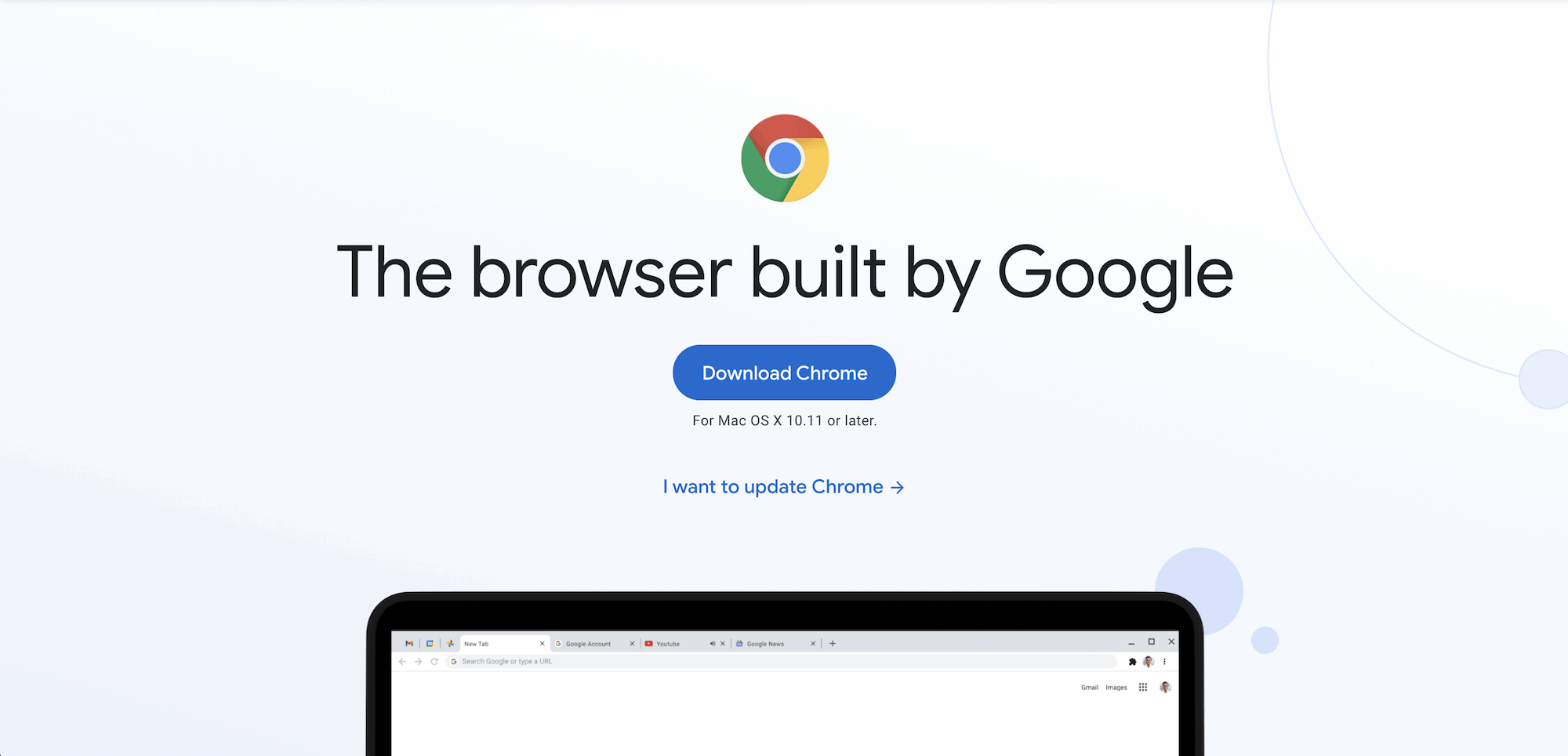
The Chrome browser provided by Google is undoubtedly the most popular browser in the world. It impresses both Windows and Mac users with great speed and a great user experience. The browser also offers a host of security features for data security and privacy.
Chrome enables:
- Deactivation of website tracking of your usage behaviour
- Blocking scripts and pop-ups
- Global and partial blocking of cookies
- Warnings for dangerous sites and downloads
- Notification in the event of a leak of stored passwords
- Control over website authorisations granted
- Blocking certain websites
Chrome also provides an incognito mode. In this mode, you can surf the internet as comfortably as usual. However, no browsing history is created and no cookies are saved.
Despite its many security features, Chrome also has one major disadvantage. Users have to sign in with their Google account to use Chrome. This allows Google to collect vast amounts of personal data.
Safari
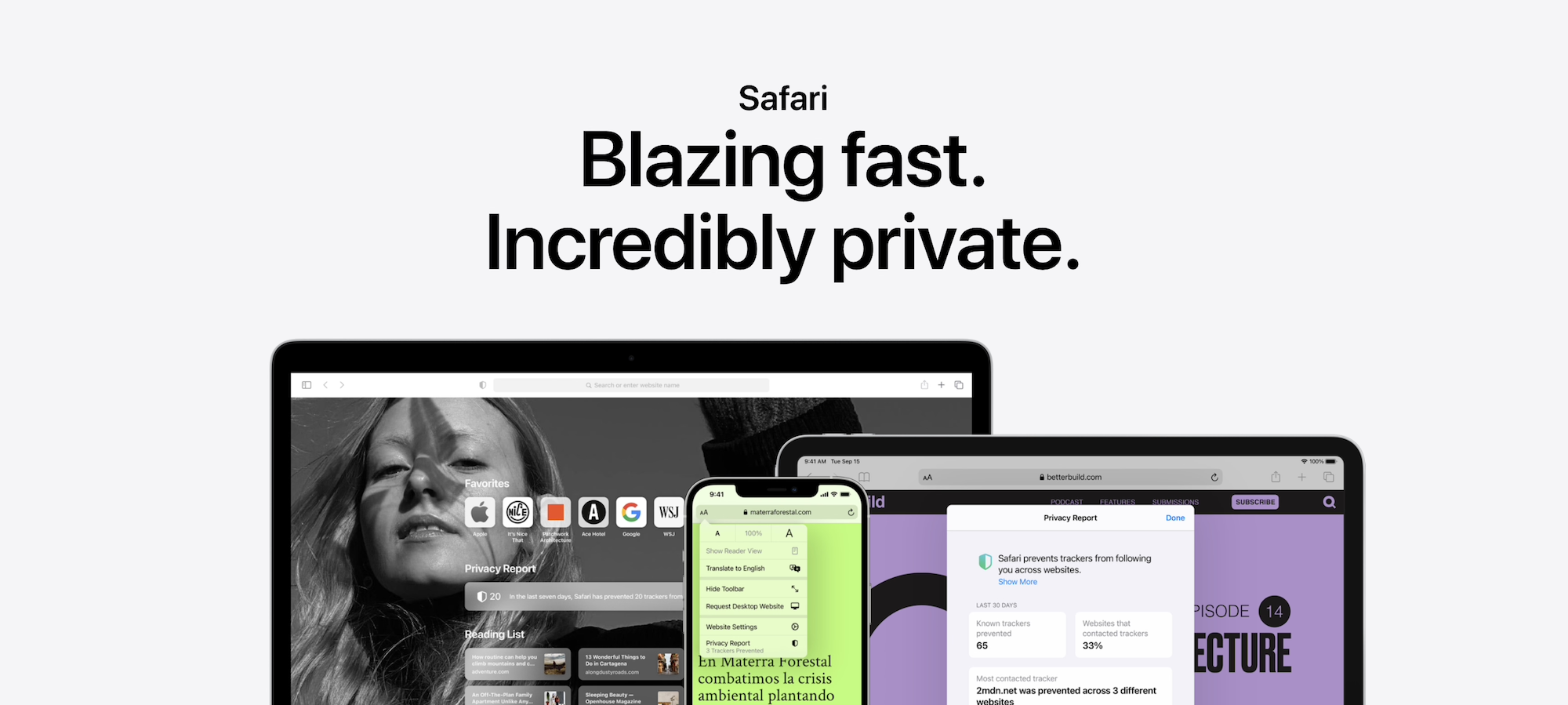
Safari – Apple’s in-house browser – is very popular with Mac users and is used by most Apple users for surfing. Measured by the number of active users, Safari is the most popular browser worldwide after Chrome(mobile market share significantly higher than desktop market share).
Safari is also impressive when it comes to security. The browser from Apple enables:
- Preventing the loading of dangerous pages
- Intelligent tracking prevention to restrict marketing tracking
- Block all cookies
- Blocking of websites through automatic caching
- Option to block pop-ups
- Control over website permissions
- Access to privacy report
The technology giant Apple has always been known for its concern for data security. Although the Silicon Valley company collects data in the same way as Google or Facebook, it does so on a much smaller scale. In addition, Apple has repeatedly taken new measures to optimise the protection of data and privacy online in recent years.
In 2021, for example, Apple released an update as part of the new App Tracking Transparency Framework, which prevents app tracking. This means that app manufacturers such as Facebook or Instagram are no longer able to collect usage data – unless the user explicitly consents to this. Users of Apple devices and Safari can therefore look forward to high security standards.
A disadvantage similar to Chrome is that Apple itself still collects data. External websites from third-party providers can be blocked as far as possible, but the manufacturer itself is not excluded. As Safari is not an open source browser, it is not possible to trace how Apple processes the data internally.
Firefox
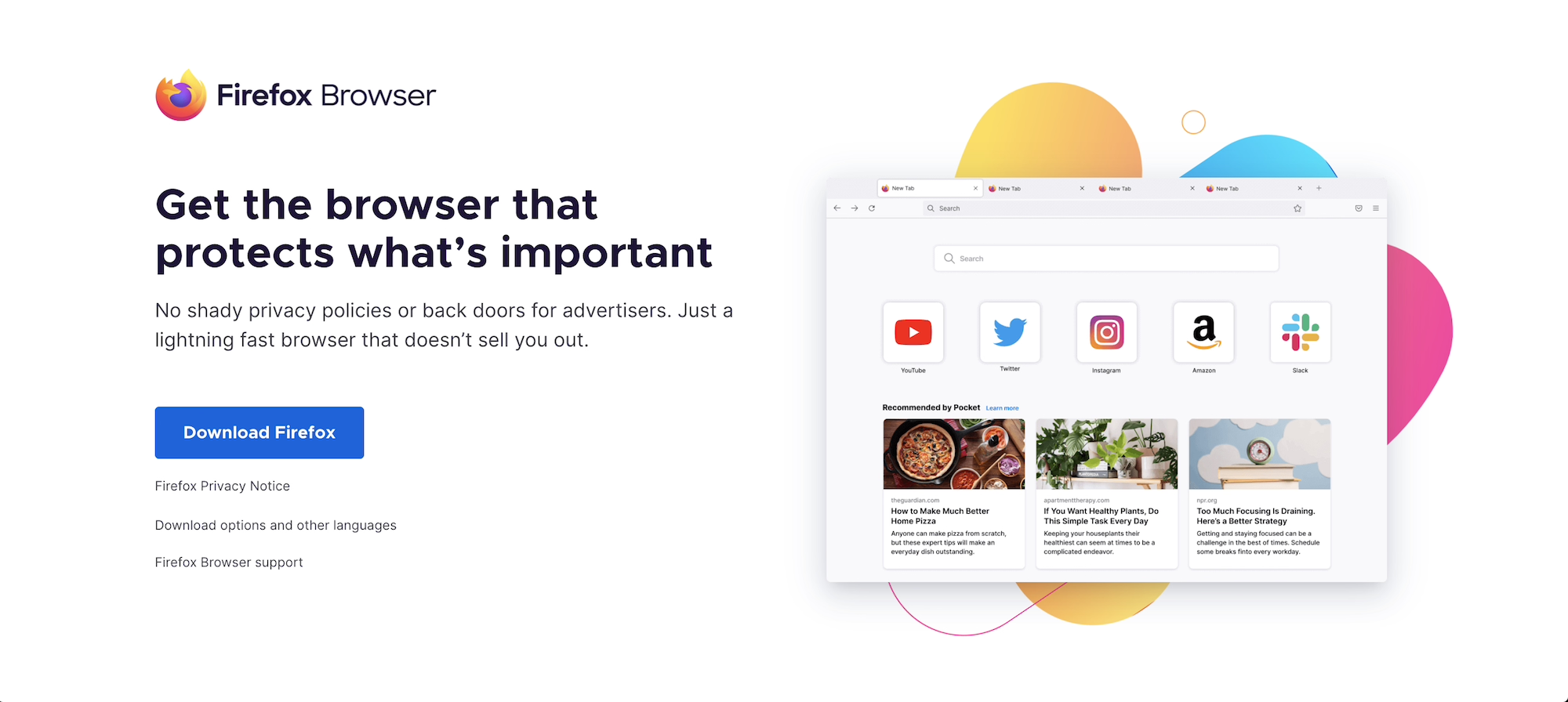
Firefox is one of the most popular web browsers after Chrome and Safari. Although Mozilla Firefox has lost some of its popularity in recent years, it is still one of the most frequently used browsers with over 200 million active users.
The free web browser is also one of the most secure and offers numerous data and privacy protection functions.
Firefox enables:
- Cross-web tracking protection
- Reports on the tracking behaviour of websites
- Warnings in the event of data breaches
- Prohibit Firefox from collecting data
- Control over website permissions
- Automatic blocking of pop-ups
- Blocking dangerous downloads
- Load connections exclusively via HTTPS (SSL-secured connections)
Unlike Safari or Chrome, Firefox is also an open source browser. The code can therefore be viewed by anyone and examined if necessary to ensure that there are no breaches of data protection. Firefox is also a constantly maintained browser that receives regular updates. This makes Mozilla Firefox a secure alternative to the major browsers Chrome and Safari.
Edge
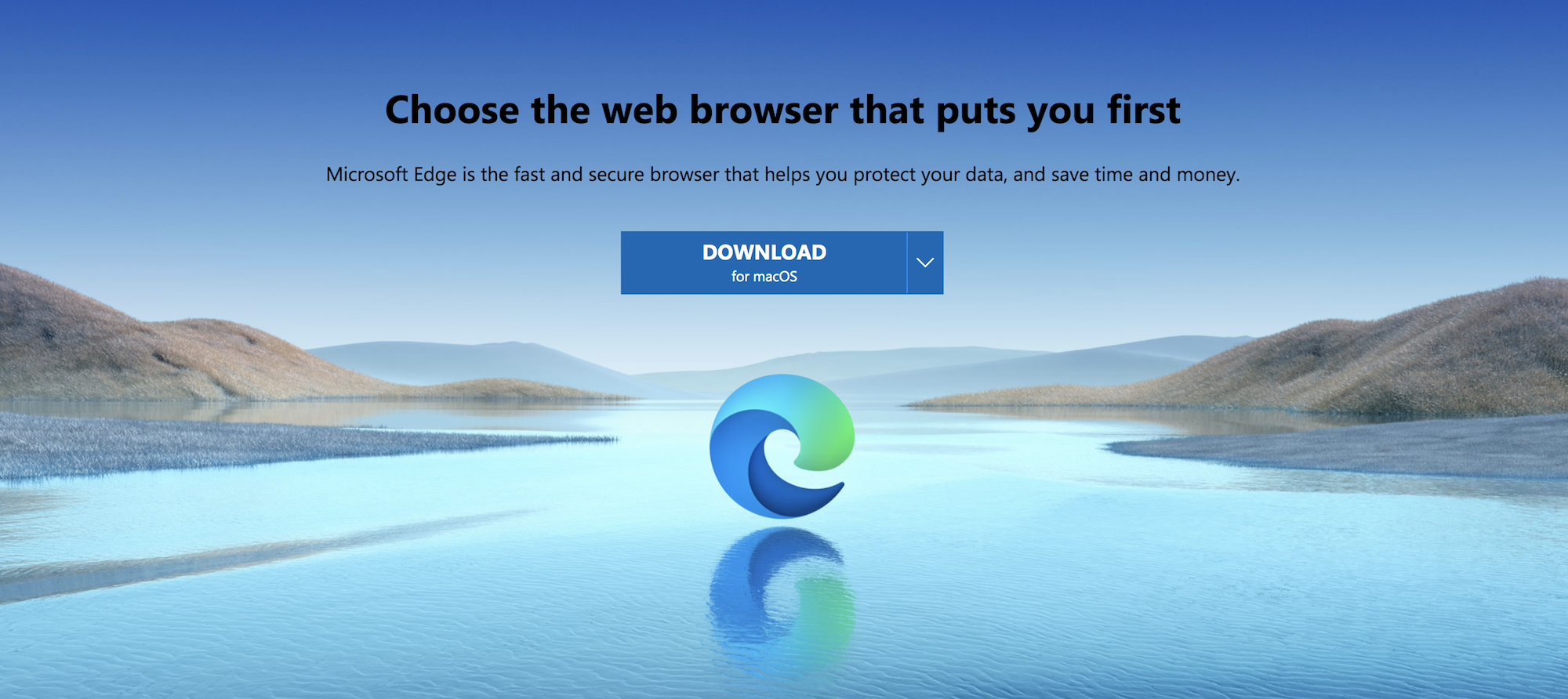
Microsoft Edge, the unofficial successor to Internet Explorer, is a similarly popular browser to Firefox and is used by many people in everyday life.
In the area of security, Edge has a number of data protection features:
- Several options to prevent tracking
- Reports on blocked tracking services
- Setting option for tracking prevention in “InPrivate mode”
- Automatic protection against malicious websites and downloads
- Prohibit Microsoft from collecting data
Just like its browser competitors from America – Chrome and Safari – Microsoft also utilises the option of collecting usage data with the Edge browser.
There are also indications that Edge shares hardware IDs of end devices with third-party providers. This allows them to identify the user’s hardware.
Edge therefore offers an average level of security. The functions enable standard security. However, due to the amount of data collected by Microsoft itself and even shared with external parties, it cannot be considered an extremely secure browser.
Brave
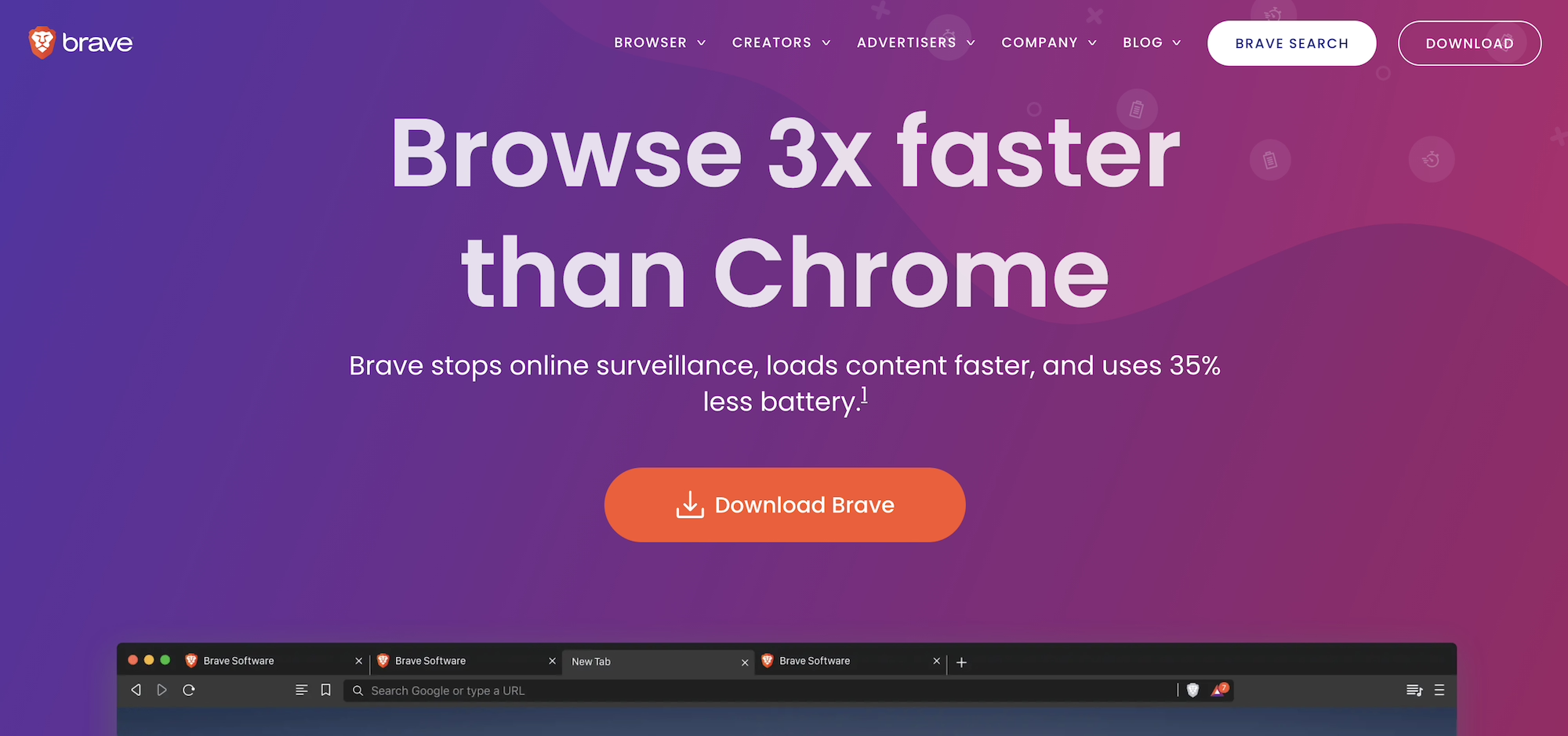
In addition to the established web browsers, one or two newcomers have also crept into the rankings. These include the browser Brave, which was released in 2019.
Although the browser still has a relatively small number of users compared to Chrome and Safari, it is still one of the most exciting new browsers. Brave offers a variety of unusual features, including an advertising platform linked to the browser and cryptocurrency. The browser even boasts that it is up to three times faster than Chrome.
Brave is also extremely reliable compared to other browsers when it comes to security. The functions include
- Automatic blocking of third-party adverts
- Automatic blocking of tracking services
- Integrated password manager
- Option to block cookies and scripts
- Private mode comparable to Tor Browser
- Load connections exclusively via HTTPS
With regard to data security, it should also be mentioned that Brave runs on the basis of the Chromium browser project. Despite the browser’s security measures, it is therefore not possible to completely rule out the possibility of data being transmitted to Google servers.
And even if Brave automatically blocks ads from third-party providers, your own ads are still shown and your behaviour is still tracked.
Tor
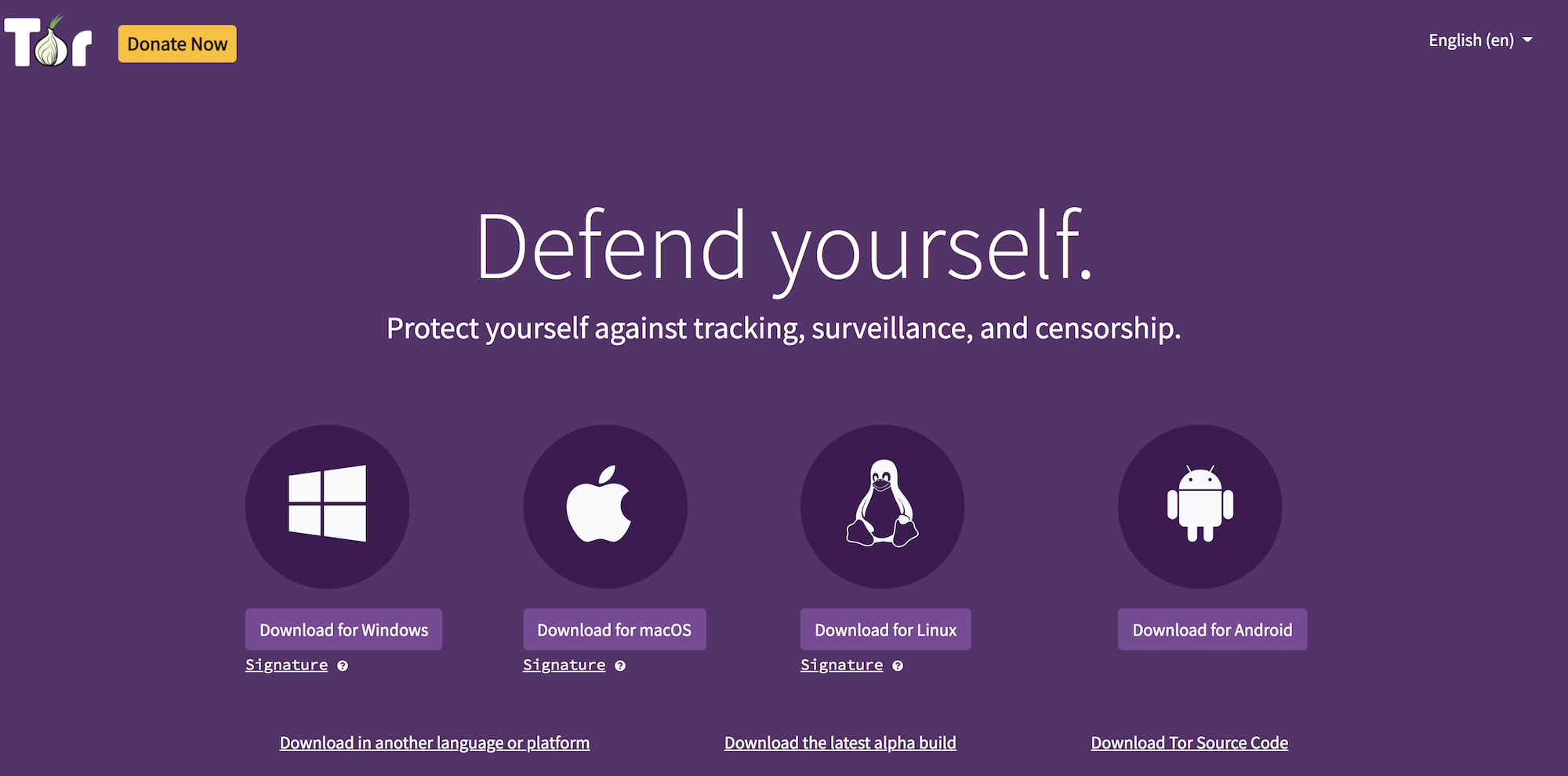
“Defend yourself. Protect yourself from tracking, surveillance and censorship.” This slogan of the Tor browser perfectly describes its features. Tor is probably the most secure browser currently available. When using Tor, it is almost impossible to track your usage, as requests are constantly passed back and forth between relay servers.
The Tor browser project is bursting with security precautions and measures to protect data and privacy. Unfortunately, as good as the browser is when it comes to security, its user-friendliness is just as bad. The browser is not designed to impress with a smart design and a good user experience. It’s all about security.
The safety functions include
- Automatic blocking of tracking services
- Automatic blocking of website scripts
- Loading connections exclusively with HTTPS
- Automatic deletion of cookies after each session
The range of security functions makes Tor the most secure browser in the world. However, this also comes with disadvantages.
By blocking all scripts, websites are sometimes not displayed correctly. In addition, the use of Tor prevents you from logging in to some websites.
Another disadvantage of Tor is the need to jump between different servers, which puts a strain on the connection quality and can lead to very slow loading times.
Tor is convincing across the board in terms of security, but compromises have to be made in terms of usability and user-friendliness.
Ecosia

Ecosia is probably the most charitable browser to make it onto our list. Launched in 2009, the browser is committed to climate and environmental protection and uses the browser’s revenue to plant trees. The company itself claims that it takes an average of 45 search queries to plant a tree.
These are financed by search adverts in Ecosia’s own search engine, which advertisers can place in the search results for a fee. In 2021, Ecosia planted over 300 million trees. This is made possible by over 15 million active users.
Raidboxes and Eden: People+Planet
Like Ecosia, Raidboxes works with the People + Planet + Eden organization to support reforestation projects. For example, we plant a tree for every new website you host with us. If you want to learn more about this topic, check out our page on green hosting.
On average, a tree is planted every 1.3 seconds. In total, over 12 million euros have already been invested in reforestation projects around the world as part of the Ecosia project.
The user-friendly browser application has the following security measures:
- Only temporary storage of search queries
- No transmission of data to third-party providers
- Encrypted search queries
- No use of external tracking services
- Complete control over tracking deactivation
Ecosia states that it only collects the data that is absolutely necessary. The browser fulfils the usual standards. If you expect a normal level of security when surfing and at the same time want to make a small contribution to environmental protection, Ecosia is a good choice.
Startpage
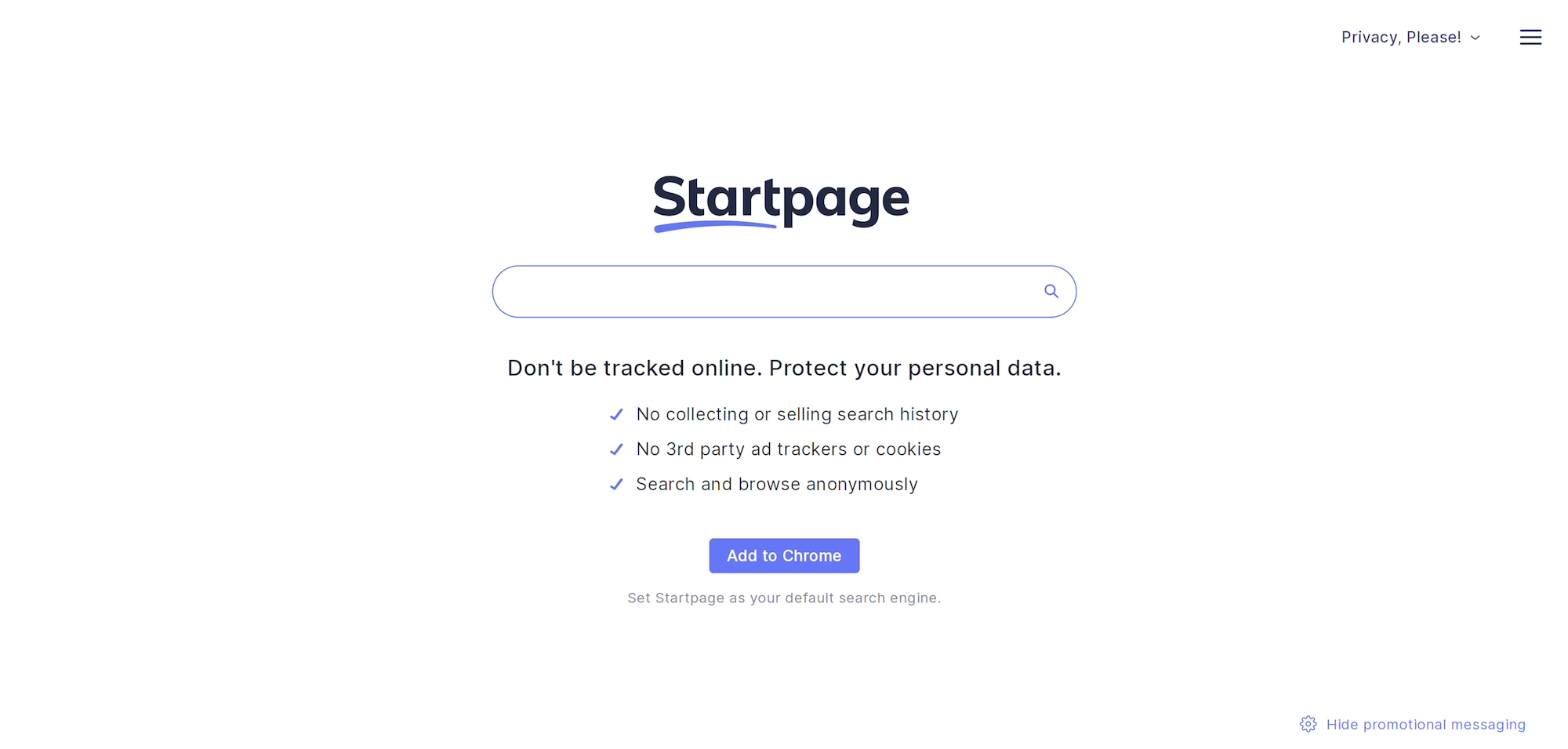
Startpage is a search engine and a private browser. The search engine usually acts as a kind of intermediary, for example between you and Google. You do not send a search query directly to Google, but first to Startpage, which forwards it anonymously to Google. This protects your data and identity.
The safety functions include
- Encrypted search queries
- Loading connections exclusively with HTTPS
- Blocking unwanted advertising
- Blocking tracking services
- Blocking phishing and malware
- Control over privacy settings – level from “Standard” to “Strict”
Startpage can be used via common browsers, although Chrome blocks Startpage as the default search engine. Since 2020, the company has been cooperating with the secure browser Opera. It is therefore ideal to use it in combination with this browser.
DuckDuckGo
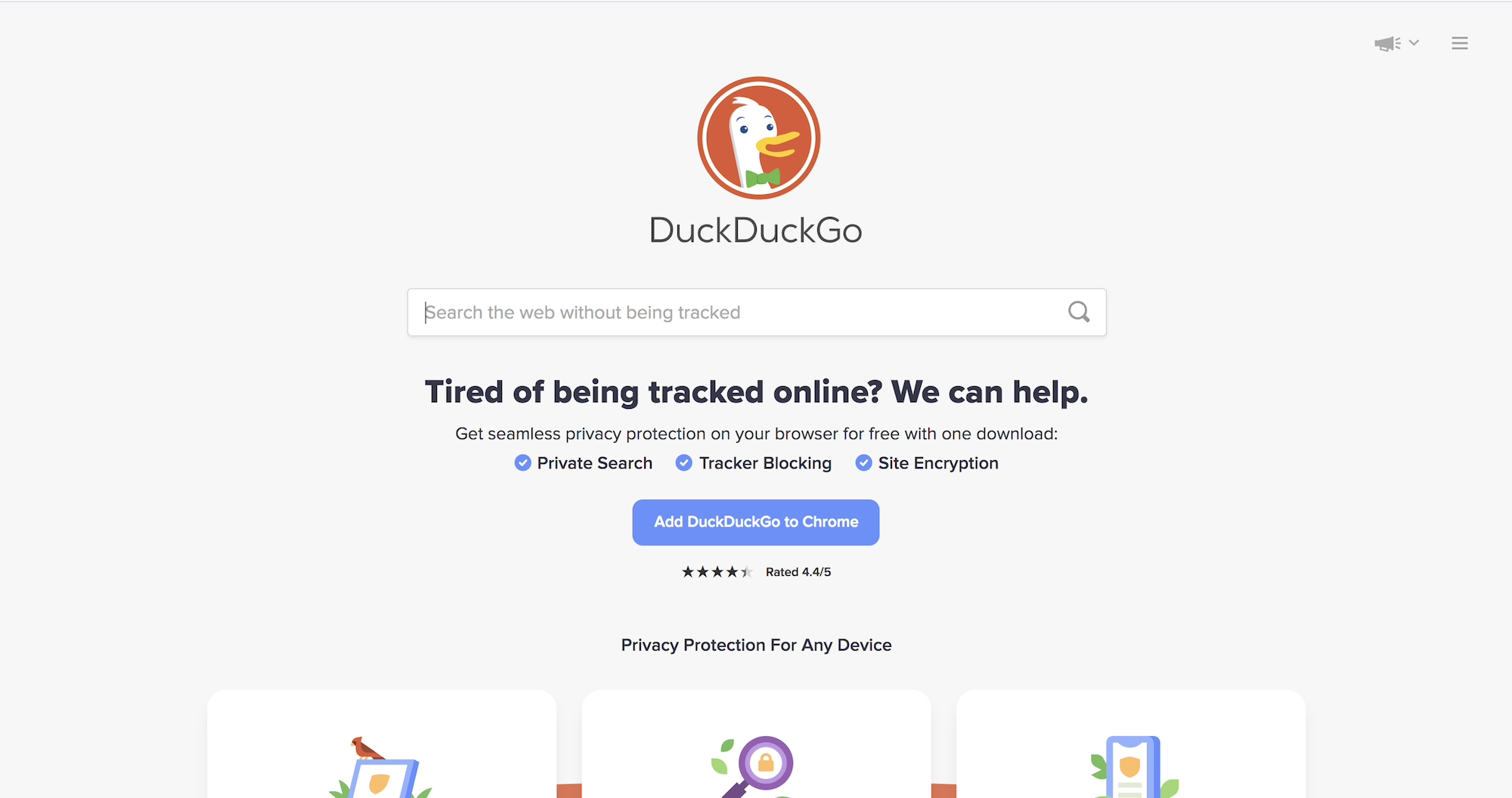
DuckDuckGo sees itself as an “Internet privacy company” and in keeping with this description, the search engine promises an Internet experience without any data loss or security concerns, similar to Startpage.
The security features at a glance:
- No storage or retention of usage data
- No recording of search queries
- No display of advertisements based on user behaviour
DuckDuckGo also offers a mobile browser for Android and iOS users. Here too, no search history is created or other data collected that could potentially be sold on to third-party providers.
This makes DuckDuckGo one of the most secure browsers on this list.
Data protection & privacy: Which browser is the most secure?
We have now taken a closer look at nine well-known and less well-known browsers and search engines. But which is the most secure browser?
In terms of security alone, nobody can hold a candle to the Tor browser. This is where by far the greatest efforts are made to protect data and create anonymity online. Tor is anything but user-friendly.
Brave and Firefox have the best combination of data protection, browser security and flawless usability.
Subscribe to the Raidboxes newsletter!
We share the latest WordPress insights, business tips, and more with you once a month.
"*" indicates required fields
Conclusion
Browsers are our most important tool for perceiving and utilising the entire wealth of the digital world. They give us access to the internet.
However, we need to be on our guard and use a modern browser with high security standards to ensure that our private information is always protected.
You now know many browsers and search engines and their pros and cons. Once you have decided on a browser and checked your security settings, nothing stands in the way of a perfect web experience!
Your questions about secure browsers
What questions do you have about browser security and data protection? We look forward to your comments. For more insights on WordPress, web design or online business, follow Raidboxes on Facebook or LinkedIn – or subscribe to our newsletter.


Leave a Reply